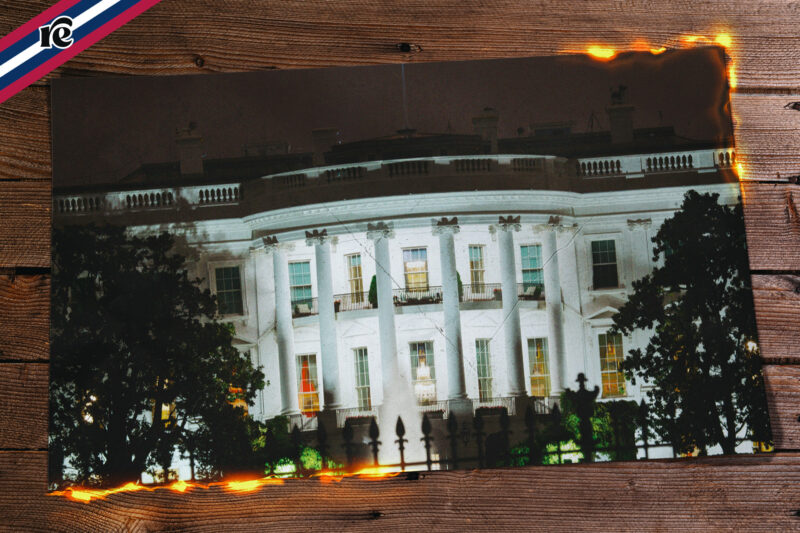Federal Judges Don’t Like Trump’s Executive Orders. Will It Matter?
Plus, RFK Jr. overcomes hurdles to confirmation, is sworn in as head of HHS.

The Trump administration found out this week that ruling almost exclusively by presidential order might not be sustainable. That is, if you believe the federal courts have a role in checking the power of the executive branch. We hope you have your at-home blood pressure cuffs at the ready. Here’s what happened in Trump administration news this week.
Health and science
- Robert F. Kennedy Jr. was sworn in as the new secretary of the Department of Health and Human Services. The noted anti-vaxxer will now oversee the nation’s biggest public health agencies, including the Food and Drug Administration and the Centers for Disease Control and Prevention.
- To accompany his confirmation, President Trump established a “Make America Healthy Again” commission via executive order. The commission will work across federal agencies to address chronic diseases and increase the availability of healthy and affordable produce, the press release read. It sounds really great, but that’s before you realize Kennedy has a history of making false health claims that are not supported by science—like claiming antidepressants are as addictive as heroin; referring to Lyme disease as a military bioweapon; and suggesting mifepristone, a drug that’s been FDA approved for use in medication abortions for decades, may be unsafe.
- Senator Mitch McConnell was the only Republican to vote against Kennedy. Trump later accused the senator, who survived polio as a child, of being “bitter.” The president also questioned his mental acuity, and raised doubts about McConnell’s brush with the infectious disease.
- This all comes amid Trump administration plans to gut the federal public health workforce. More than 5,000 employees are expected to be fired before next week, according to STAT News.
Reproductive rights
- New York Gov. Kathy Hochul refused to extradite a New York doctor charged with prescribing abortion pills to an under-18 patient in Louisiana, citing New York’s “shield” law, which protects abortion providers who offer telehealth care to patients in other states. This is the first known instance of a doctor facing criminal charges for prescribing abortion pills across state lines. A Louisiana grand jury also indicted the girl’s mother, who could face up to five years in prison.
- Hochul previously refused to extradite the same doctor to Texas, where she faces a civil lawsuit. On Thursday, a Texas judge fined the New York doctor—who did not attend the hearing—$100,000. The state of Texas is expected to file an action in New York court to try and recover the fine, which would almost certainly fail due to the shield law. One or both of these cases will likely end up before the Supreme Court in a major test of the shield law framework.
- Louisiana officials met with newly-confirmed U.S. Attorney General Pam Bondi to ask for her help to stop out-of-state doctors from providing abortions to Louisiana residents. “I would love to work with you,” said Bondi, hinting that she may be open to an interpretation of the 1973 Comstock Act that would ban sending abortion pills through the mail—at a minimum.
- KFF reports that some abortion ban states claim zero abortions in 2023, which a researcher called “dishonest” and a doctor deemed “ludicrous.”
LGBTQ+ rights
- Two federal judges, one in Maryland and another in Washington, temporarily blocked Trump’s executive order that aimed to restrict youth access to gender-affirming health care. The executive order came as part of a sweeping effort by the Trump administration to restrict transgender rights, limit academic research on LGBTQ+ communities, and erase trans people from the historical record.
- Speaking of trans history, the National Parks Department took down references to transgender people from a website it runs about Stonewall Inn, a New York city bar at the center of queer rights activism for decades.
Anti-democratic actions
- In response to a federal judge’s block of efforts by Elon Musk and the Department of Government Efficiency (DOGE) to access treasury department systems, Vice President JD Vance suggested that judges can’t check a president’s “legitimate power.” The Yale Law School graduate may have been surprised to learn that judges are, in fact, the people typically tasked with determining whether legislative or executive actions fall within the scope of the law.
- And determine they did. Since Vance’s tweet, federal judges have blocked a number of the Trump administration’s actions, including a freeze on funding to USAID.
- How long judges will be willing or able to check executive power is unclear, however, after The Hill reported that some congressional Republicans are considering lodging impeachment articles against federal judges who have challenged the legality of various Trump administration efforts.
- Multiple federal prosecutors resigned this week, after the Department of Justice ordered a corruption indictment against New York City Mayor Eric Adams be dropped. The decision came amid reports that Adams would help the Trump administration carry out its immigration enforcement policies in the city.
Immigration
- Four federal judges have issued orders blocking a Trump executive order ending birthright citizenship, according to The Associated Press. For more on how this could play out in the courts, read Imani Gandy’s analysis for Rewire News Group.
- Bondi continued her attack on local and state sanctuary policies, announcing Wednesday that the justice department filed charges against New York over a law that allows undocumented residents to apply for a driver’s license without a Social Security number.
